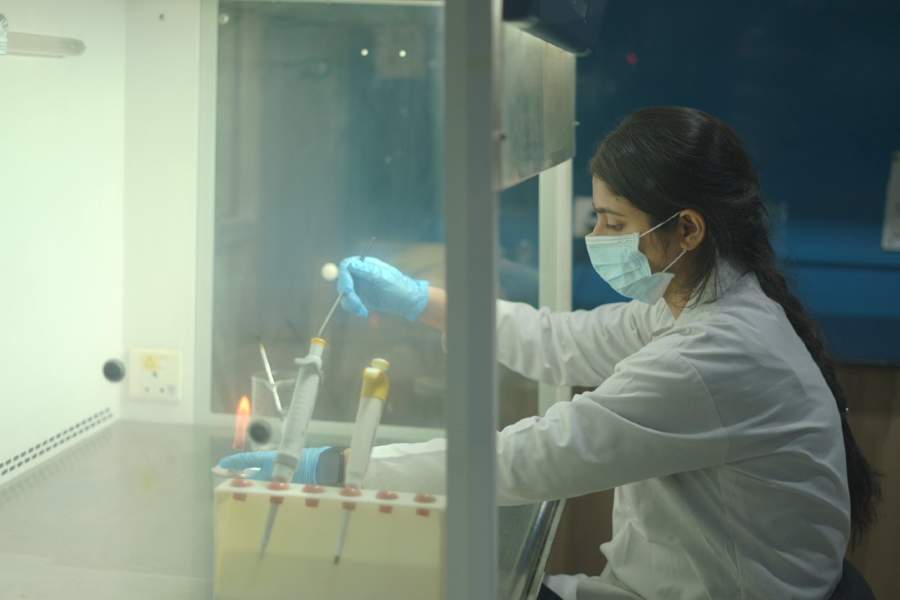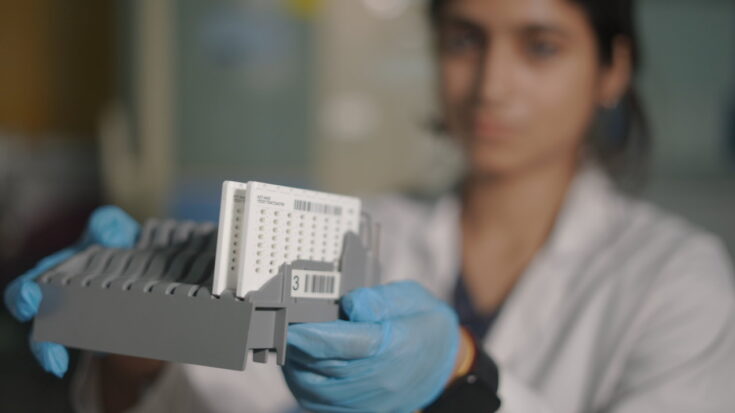Urinary tract infections (UTIs) are painful and prevalent, especially for women and at least half of all women are expected to develop at least one UTI in their lifetimes.
Late diagnosis of UTIs means they are commonly treated with antibiotics, contributing to the increase of antimicrobial resistance (AMR).
Diagnostics for One Health and User-Driven Solutions for Antimicrobial Resistance (DOSA), an interdisciplinary UK-India collaboration, identified an opportunity to encourage earlier and more effective diagnosis of UTIs, minimising antibiotic use.
Understanding behaviour to drive change
Shifting human behaviours around antibiotics relies on establishing new habits and practices.
To understand these behaviours and capture essential community knowledge, this transdisciplinary project used social sciences to inform the biotechnology.
Developing a patient-led solution

DOSA lab technician performing testing. Credit: UKRI India
Funding from UK Research and Innovation’s (UKRI) Economic and Social Research Council and India’s Department of Biotechnology, facilitated by UKRI India, enabled DOSA to employ the following to develop an entirely patient-led solution:
- social research
- design methods
- observation
- interviews
- visual tools
Insights identified that a diagnostic test needed to be:
- simple to use
- highly portable
- operate without electricity
- suitable for remote or high-altitude climates
- environmentally sustainable to produce
A portable diagnostic tool for potential global expansion
The result was a prototype for a low-cost, paper-based diagnostic test designed for home use.

Paper-based diagnostic test demonstration. Credit: UKRI India
Further funding from LifeArc, a British life science medical research charity, led to field testing among communities in Southern Assam, India.
The test is already helping with the early identification of UTI symptoms and driving more patients to medical centres for self-care advice.
Expanding the reach of diagnostic testing
Dr Till Bachmann, Professor of Molecular Diagnostics and Infection at The University of Edinburgh, said:
DOSA has huge potential to go beyond the UK and India to many places where diagnostics are needed, and where communities need to improve their knowledge around health.
With projects like DOSA, I’m absolutely convinced that we can expand the reach of diagnostics in these settings.
Find out more
Watch our video on The UK-India DOSA story: Thriving through research and innovation (YouTube).

